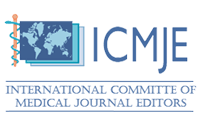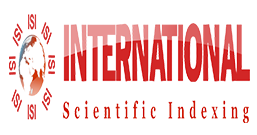Sustainable Diets and the Decalogue for Sustainable Food and Nutrition in the Community
Sandro Dernini1,2,3*
Affiliation
- 1International Foundation of Mediterranean Diet, London, UK
- 2Forum on Mediterranean Food Cultures, Rome, Italy
- 3FAO Department of Agriculture and Consumer Protection, Rome, Italy
Corresponding Author
Sandro Dernini, Forum on Mediterranean Food Cultures, via Giovanni da Castel Bolognese 89, 00153 Rome, Italy, Tel. +39.3396170975; E-mail: s.dernini@tiscali.it
Citation
Dernini, S. Sustainable Diets and the Decalogue for Sustainable Food and Nutrition in the Community. (2016) J Environ Health Sci 2(5): 1- 3.
Copy rights
© 2016 Dernini, S. This is an Open access article distributed under the terms of Creative Commons Attribution 4.0 International License.
Keywords
Sustainable diets; Sustainable food systems; Food security and nutrition; Sustainability
Abstract
Sustainable food systems play an important role in increasing resource efficiency, more sustainable use of resources, and building resilience in communities responding to a rapidly changing global environment. Sustainable diets’ notion links food consumption to production by taking into account nutritional requirements. The Decalogue for Sustainable Food and Nutrition in the Community provides a platform for community-based actions towards more sustainable diets, by reconnecting together within the community context the place of production and the space of consumption. This linkage between a dietary pattern and a geographic area has loosened with globalization. Within a period of radical transformation of the contemporary global scenario, the complexity of food security, nutrition and sustainability issues requires, within the people-centered development paradigm, new forms of community-based dialogues and actions. The Decalogue with its 10 points provides an operational ground for the development of meaningful discussions among communities towards a better understanding on how to integrate sustainability and food security and nutrition within their food systems. There is a need of more community-based sustainable food systems projects and intersectoral case studies for revitalizing local capacities. The Decalogue encourages the development of community-based projects and multi-stakeholder initiatives, such as the Island in Your Plate project, rooted in the cultural respect for the territory, in the sustainable management of natural resources, in the recognition and consumption of seasonal local products, and in the appreciation of the richness of local varieties and biodiversity. Connecting food security and sustainability to the nutritional well-being of the individual and of the community is the today challenge.
Introduction
Population and income growth as well as urbanization are driving increased and changing food and feed demand. FAO estimates that in 2050, to satisfy the demand of a growing and richer population, with an increased meat demand, food production will have to increase by at least 60 percent in the next decades (Alexandratos, et al; 2012). Today, the main challenge for the food and agriculture sector is to simultaneously provide enough food – both in quantity and quality – to meet nutritional needs of all while conserving the natural resources to produce food for present and future generations. Despite the fact that the world is producing enough food to feed its entire population, almost 795 million people – representing about 12.9 percent of the population in developing regions – go hungry (FAO, IFAD and WFP; 2015); 161 million under-five year olds are estimated to be stunted (UNICEF-WHO; 2013); and about two billion are malnourished, lacking the essential micronutrients they need to lead healthy lives (FAO; 2013). At the same time, the number of overweight/obese people has reached more than 1.4 billion adults globally – representing about 30 percent of the total adult population – and obesity-related health conditions are rising rapidly in both developing and developed countries (WHO; 2015); and around 30 percent of the food produced worldwide – about 1.3 billion tons – is lost or wasted every year (FAO; 2011). Current pressures on the planet’s natural resources will further increase with population and economic growth, unless consumption and production patterns become more efficient, less polluting and operate within planetary resource boundaries.
Sustainable food Systems Food systems rely on a natural resource base that is becoming increasingly more fragile and scarce, and that is extremely vulnerable to climate change as well as biodiversity loss – both of which are undermining food security and nutrition (IPCC. Climate Change; 2014). Therefore, food systems have to become more efficient in their use of resources and increase resilience to environmental/climate-change related threats, at every stage, from primary production to transformation, distribution and consumption while relaying on a fragile and increasingly scarce resource base. Food system is defined as “a food system gathers all the elements (environment, people, inputs, processes, infrastructures, institutions, etc.) and activities that relate to the production, processing, distribution, preparation and consumption of food and the outputs of these activities, including socio-economic and environmental outcomes” (HLPE; 2014). Food systems play a key economic and social role in all societies and are fundamental to ensuring sustainable development; therefore, sustainable food systems are critical to improve food security and nutrition. A sustainable food system is defined as “a food system that delivers food security and nutrition for all in such a way that the economic, social and environmental bases to generate food security and nutrition for future generations are not compromised” (HLPE; 2014). Such a definition of sustainable food system entails the interconnectedness of all the food-related activities and the environment within which these activities occur. Further, it acknowledges that the production and consumption of food is a dynamic process involving multiple inputs, outputs and diverse stakeholders. In addition, it recognizes the diversity of food systems and their impacts, including from environmental, economic, social, health-related, ethical and cultural perspectives. Agro-food systems need to grow within the context of a finite and sometimes shrinking resource base and need to make use of the natural resources in a sustainable manner and conserve the ecosystem base. Such growth needs to be inclusive and target broader objectives than production and include efficiencies along the whole food chain and promote sustainable practices and sustainable dietary patterns.
Sustainable diets
There is growing recognition of the complexity of defining sustainability, as well as a growing body of evidence of the unsustainable nature of current diets. It has made, particularly in this last decade, a compelling case for re-examining food systems and diets within the sustainable development agenda. Sustainable diets have emerged as a critical issue for sustainable food systems (HLPE; 2014). Sustainable diets are defined as follow: Sustainable Diets are those diets with low environmental impacts which contribute to food and nutrition security and to healthy life for present and future generations. Sustainable diets are protective and respectful of biodiversity and ecosystems, culturally acceptable, accessible, economically fair and affordable; nutritionally adequate, safe and healthy; while optimizing natural and human resources (Burlingame, et al; 2012). The notion of sustainable diets acknowledges the interdependencies of food production and consumption with food requirements and nutrient recommendations, and at the same time, reaffirms the notion that the health of humans cannot be isolated from that of ecosystems (Burlingame, et al; 2011). In early 80s, the notion of “sustainable diets” was described by Gussow and Clancy to recommend diets healthier for the environment as well as for consumers (Gussow, et al; 1986)(11). With the food globalization process and the increased industrialization of agricultural systems, with no attention for the sustainability of the ecosystems, the sustainable diet’s concept was neglected for many years. Recently, the interest on sustainable diets was again raised by FAO (Burlingame, et al; 2012), particularly in direction of the Rio+20 international conference on sustainable development (FAO; 2012). The concept of sustainable diets involves economic, environment, socio cultural issues which influence nutrition and health outcomes. Integrating the notion of sustainable diets with the food chain approach, i.e., “getting biodiversity from the farm to the plate” provides an innovative intersectoral effort to counteract the simplification of diets, loss of biodiversity, and the degradation, ecosystems, and to prevent further erosion of food cultures. It serves to further promote traditional foods of indigenous peoples with their many sources of nutritionally-rich species and varieties as readily-accessible, locally-empowering and sustainable sources of quality nutrition. Furthermore, it will highlight that in an increasingly global, urban and commercial environment, fulfilment of the potential of local resources must successfully integrate production, marketing, consumption and the health of rural and urban dwellers alike as components of sustainable food systems (Burlingame, et al; 2011).
Reconnecting sustainable food production, food consumption and diets: The Decalogue for Sustainable Food and Nutrition in the Community.
Sustainability is presented in the Decalogue as an important aspect of the entire food chain process (production, transformation and distribution) for both plant and animal products. The environment is highlighted as usually more vulnerable to intensive production as to traditional systems of production, raising livestock and fishing, and therefore sustainable and harmonious food systems should be promoted. Therefore, by reconnecting together within the community context the place of production and the space of consumption the Decalogue provides a platform for community-based actions towards more sustainable diets. This linkage between a dietary pattern and a geographic area has loosened with globalization. With its 10 points, the Decalogue facilitates meaningful discussions among communities towards a better understanding on how to integrate sustainability and food security and nutrition within their food systems, by encouraging the development of community based actions that promote healthy eating patterns based on locally available foods linked to the territory, culture, equity and economy. Food education in the Decalogue is a fundamental element for the culture and identity of people. Therefore, the protection of gastronomic and cultural heritage in the community is seen in the Decalogue as a priority for the sustainability of food and nutrition in and of itself.
Within a period of radical transformation of the contemporary global scenario, the complexity of food security, nutrition and sustainability issues requires, within the people-centered development paradigm, new forms of community-based dialogues and actions. There is a need of more community-based sustainable food systems projects and intersectoral case studies for revitalizing local capacities. The Decalogue encourages the development of community-based projects and multi-stakeholder initiatives, such as the Island in Your Plate project, rooted in the cultural respect for the territory, in the sustainable management of natural resources, in the recognition and consumption of seasonal local products, and in the appreciation of the richness of local varieties and biodiversity.
Conclusion
Given the central role of food in the community, the Decalogue provides a platform for action towards the development of more community-based sustainable food production and consumption projects and initiatives which can play an integral part in embedding sustainability thinking and practice into everyday life of the community. The Decalogue can play an important advocacy role in the community by raising awareness of the need to shift to more sustainable food systems and by bring together initiatives and develop partnerships to build synergies and cooperation. The rethinking now being done in the international community requires a change of course, one that proceeds from bottom to top, to ensure effective, direct participation of local communities for a wiser use of available human and natural resources. Achieving this goal will require the active involvement of stakeholders across society and along the entire food supply chain. It will require multidisciplinary and multi-stakeholder initiatives, rooted in the respect for the territory and in the sustainable management of its natural and cultural resources, in the recognition and consumption of seasonal local products, and in the appreciation of its sustainable benefits on the health of individuals and communities, as well as on health of the planet. Connecting the nutritional well-being of the individual as well as of the community to the sustainability of our everyday living is the today challenge.
Competing Financial Interest Declaration: It is declared that no financial or other conflicts of interest exist.
References
- 1. Alexandratos, N., Bruinsma, J. World Agriculture Towards 2030/2050: The 2012 Revision. ESA Working paper No. 12-03. (2012) FAO.
- 2. Burlingame, B., Dernini, S. Sustainable diets: Directions and solutions for policy, research and action. (2012) FAO.
- 3. Burlingame, B., Dernini, S. Sustainable Diets: the Mediterranean Diet as an Example. (2011) Public Health Nutr 14(12A): 2285–2287.
- 4. Food Losses and Waste in the Context of Sustainable Food Systems. (2014) HLPE.
- 5. FAO. Improving Food Systems for Sustainable Diets in a Green Economy. Working paper 4: Utilization (2012) FAO.
- 6. Gussow, J.D., Clancy, K.L. Dietary Guidelines for Sustainability. (1986) J Nutrition Edu 18(1): 1-5.
- 7. Global food losses and food waste – Extent, causes and prevention. (2011) FAO.
- 8. Global Health Observatory (GHO) data. (2015) WHO.
- 9. Pachuri, R.K., Meyer, L.A. Climate Change 2014: Synthesis Report. (2014) IPCC.
- 10. The State of Food and Agriculture. Food Systems for Better Nutrition. (2013) FAO.
- 11. The State of Food Insecurity in the World. Meeting the 2015 International Hunger Targets: Taking. Stock of Uneven Progress. (2015) FAO, IFAD and WFP.
- 12. UNICEF-WHO-The World Bank Joint Child Malnutrition Estimates 2013.












